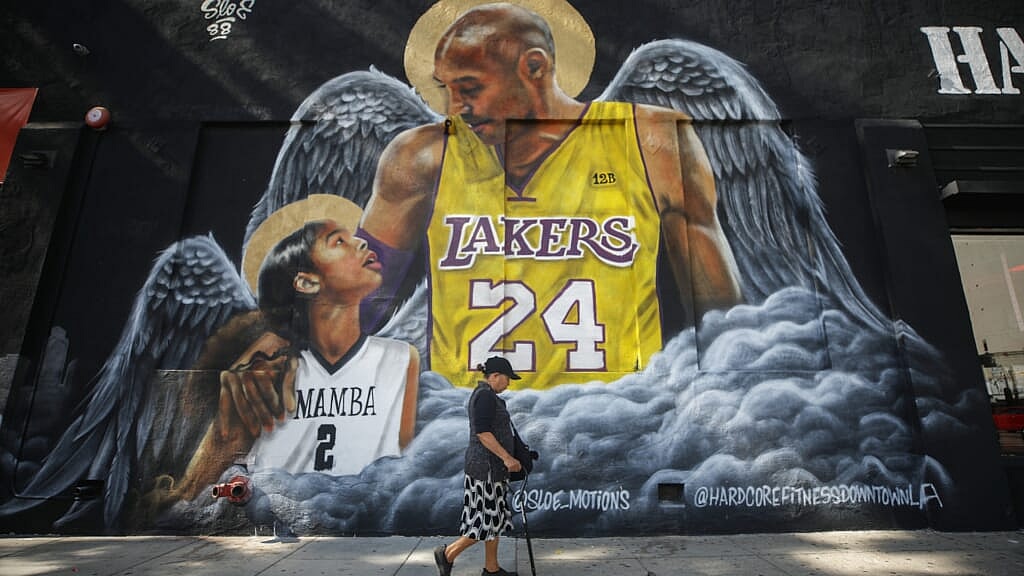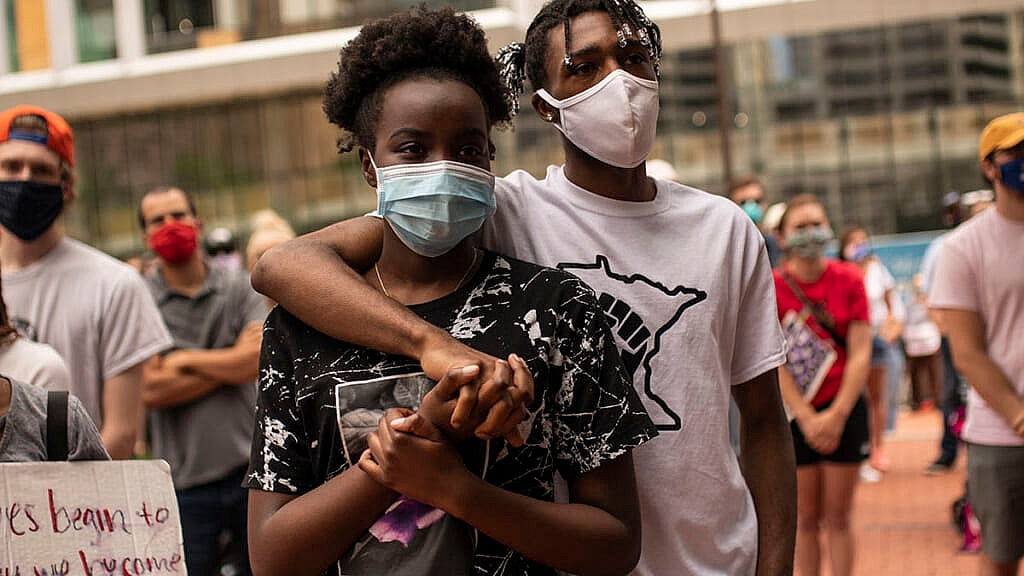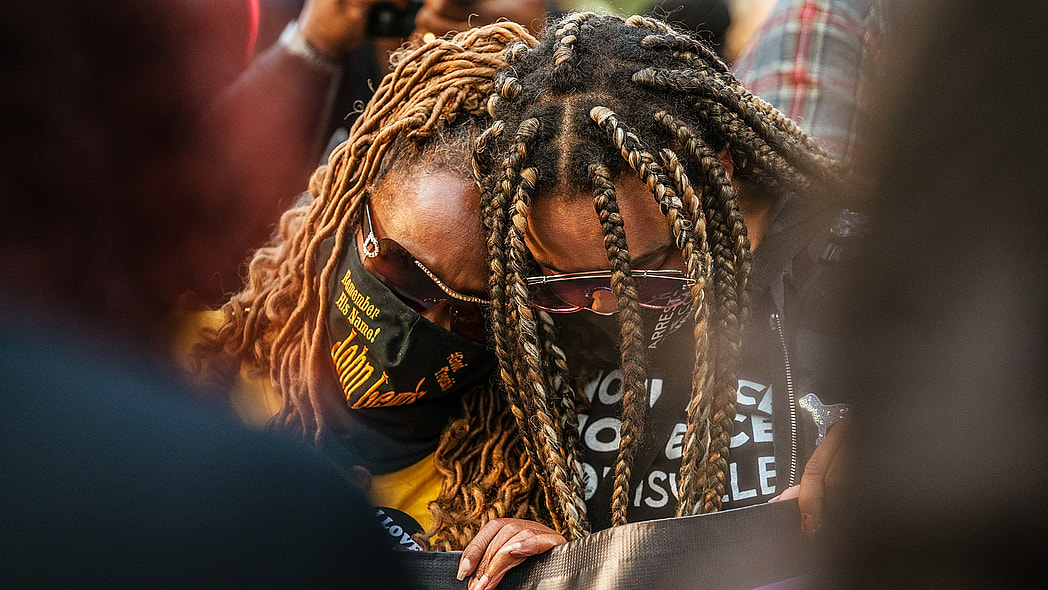Life is 100% about the choices that we make. And most of the time, we as Black people make choices out of necessity, out of obligation, and regrettably sometimes out of desperation.
If we want a better way forward in 2021, our decision making needs to change. We need to start putting self-care first. And we need to stop accepting what life throws at us and make a decision to take life by the hand and drag it along to where we want to go.
No longer being dragged along by our circumstances, our fears, and our lack. It’s time to shift into a New Year, with a new attitude.
Read More: ‘Soul’ is just what we needed at the end of 2020
Let’s be honest, the COVID-19 crisis of 2020 will not end on Dec. 31, 2020. It will sadly carry over well into 2021, which means that we as a racial-ethnic group in America will continue to be unequally afflicted by the virus economically, physically, relationally and emotionally.

The normal “New Year’s Resolutions” will not cut it in 2021. The normal “isms” that we throw about in church like “too blessed to be stressed” will no longer cut it. It’s time to get real. To get raw. And to have a plan.
As Black and brown people in the United States, we need a strategy to help us not just survive this season, but to thrive despite of it. We need tools to help us stay positive, nurtured and affirmed. It is, of course, the fuel of our faith that has historically carried our ancestors and us through unbelievably challenging times — but faith alone will not be enough.
We must learn to take care of ourselves first, so that we can take better care of others.
2020 has been quite the year for Black people, beyond the shared pain among white, Asian, Latino, and indigenous people across America. The year started off with the tragic deaths of basketball legend Kobe Bryant and his daughter Gigi Bryant in a helicopter crash. It was a reminder to us all of life’s fragility.
Read More: Kobe Bryant planned on leaving Nike for ‘Mamba’ shoe brand before his death: report

Then in March came the novel coronavirus, which had been downplayed as some distant “Chinese virus” by President Donald Trump as the virus took a deadly toll on America and disproportionately ravaged Black and brown communities due to pre-existing health disparities in cities like Michigan, New York, New Orleans, Chicago, Newark, Los Angeles and Atlanta.
Soon after, the economy collapsed. Businesses closed. The unemployment rate hit Great Depression levels and Black people were devastated on every imaginable level triggering food insecurity, homelessness, depression, domestic violence, an inability to pay the rent and worse.
As if all of that wasn’t enough, a young Black woman, an EMT in Louisville, Kentucky named Breonna Taylor, was shot and killed by police serving a “no-knock” warrant (to the wrong home) while watching TV in her bed with her boyfriend.
Read More: Louisville move to fire officers involved in raid that killed Breonna Taylor

Protests erupted, an investigation ensued, and the Black Attorney General Daniel Cameron (a protege of Sen. Mitch McConnell) came under fire for mishandling the investigation. By the end of May, as the world was locked inside, we all watched the horrific 8-minute videotaped murder of George Floyd as Minnesota police officer Derek Chauvin kneeled on his neck until his literal last breath of life had left his body.
Once again, mass protests and peaceful marches erupted all over the world, in a show of racial and global solidarity in outrage over Floyd’s death. But President Trump, appealing to his base, didn’t call for calm or racial unity. Instead, he stoked the flames of division.
All of this is what we had to absorb as Black people this year, in addition to the everyday micro-aggressions, the opportunity and wealth gaps between Black and white Americans. 2020 confirmed our worst fears: that despite seeming progress for Black America, the United States remains a place that is separate and unequal.
Read More: Artists, activists rush to save Black Lives Matter murals
We were reminded that our interactions with law enforcement are not the same as white Americans; that the dangers our Black sons, fathers, brothers and husbands face every day can very easily turn deadly. We have been traumatized and we walked around daily with “Post Traumatic Black Syndrome” in which 2020 took an extra toll on an already stressed community.

While there are no silver bullets to how we overcome these hurdles, there are, however, some practical things we must do to protect, respect, and nourish ourselves. To do anything less is to give in to the aforementioned inequities and traumas. We must not give in.
I compiled a list of some simple but important things we can do starting today to help us get through what President-elect Joe Biden calls “our darkest days ahead.”
You must sleep. Stop burning both ends of the candle and wondering why you are agitated, stressed, angry even. Make a commitment to rest your soul and feed your body everyday by sleeping at least 7-8 hours a day.
You need a morning ritual. My saving grace is the early morning silence with my morning coffee, meditation and prayer before everybody else wakes up, the dogs start barking, the packages start being delivered, and the noise of the world creeps in. You must make time for silence when you wake up. You need to get centered. You need to get your body moving. Get your soul stilled. It changes everything for the better. Trust me.
Exercise. You have to move! I am a Peloton addict. But I suggest you start with simple walking. Walk a short distance everyday, then increase it as you feel able. Ten minutes turns into 20. And 20 minutes turns into 35 minutes. Walking is good for your heart, your hormonal balance, brain function and it can help you lose weight. Try it. You will never want to go without it.
Love. We all need love. While is may be rough out here in the dating streets and the pandemic has stifled the ability to connect in person, look at this as a chance to rekindle and strengthen emotional ties. Look at this time as a chance to return to some of the rituals of ancestral courtship, versus the 21st century surface dating by app and random, meaningless sex. We all need love, so be a well of love that attracts and pours out love.
Community. The biggest toll of the pandemic is the impact it’s had on us is our inability to commune, which is an essential aspect of our culture. From family reunions, church, and other community gatherings, COVID-19 has disrupted these sacred spaces. We’ve had to pivot into other ways of connecting. The truth is that we can’t do life alone, nor were we meant to. Write letters. Send cards. FaceTime or Zoom. Have socially-distanced gatherings with masks outdoors and within CDC guidelines indoors. We need the connection of our family and friends now more than ever. Make it a priority and do it every week in some form or fashion.

Sophia A. Nelson is the author of three non-fiction books. Her 4th book, “Be the One You Need” will be published in October 2021 by Simon & Schuster.
Have you subscribed to theGrio’s podcast “Dear Culture”? Download our newest episodes now!
TheGrio is now on Apple TV, Amazon Fire, and Roku. Download theGrio today!


